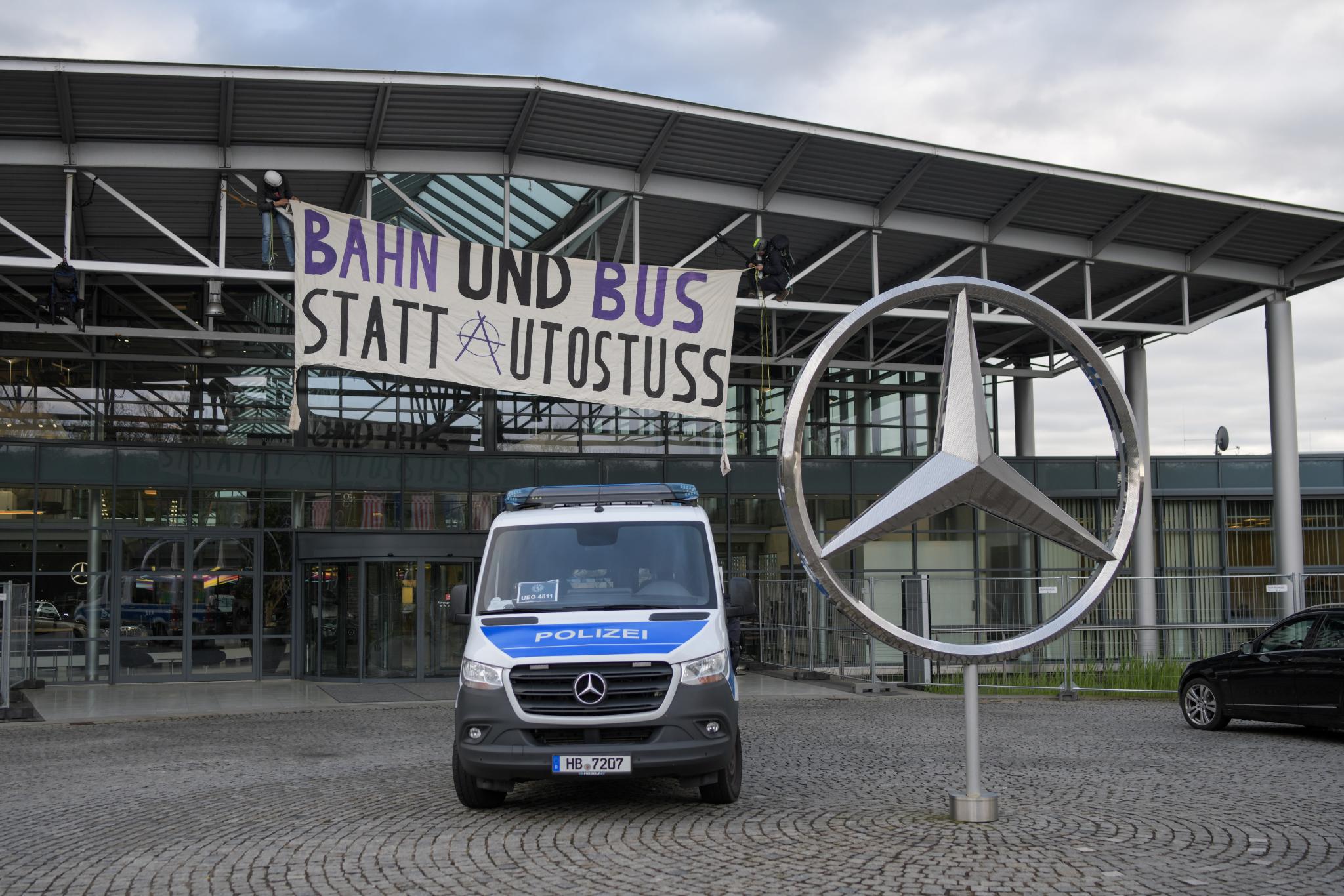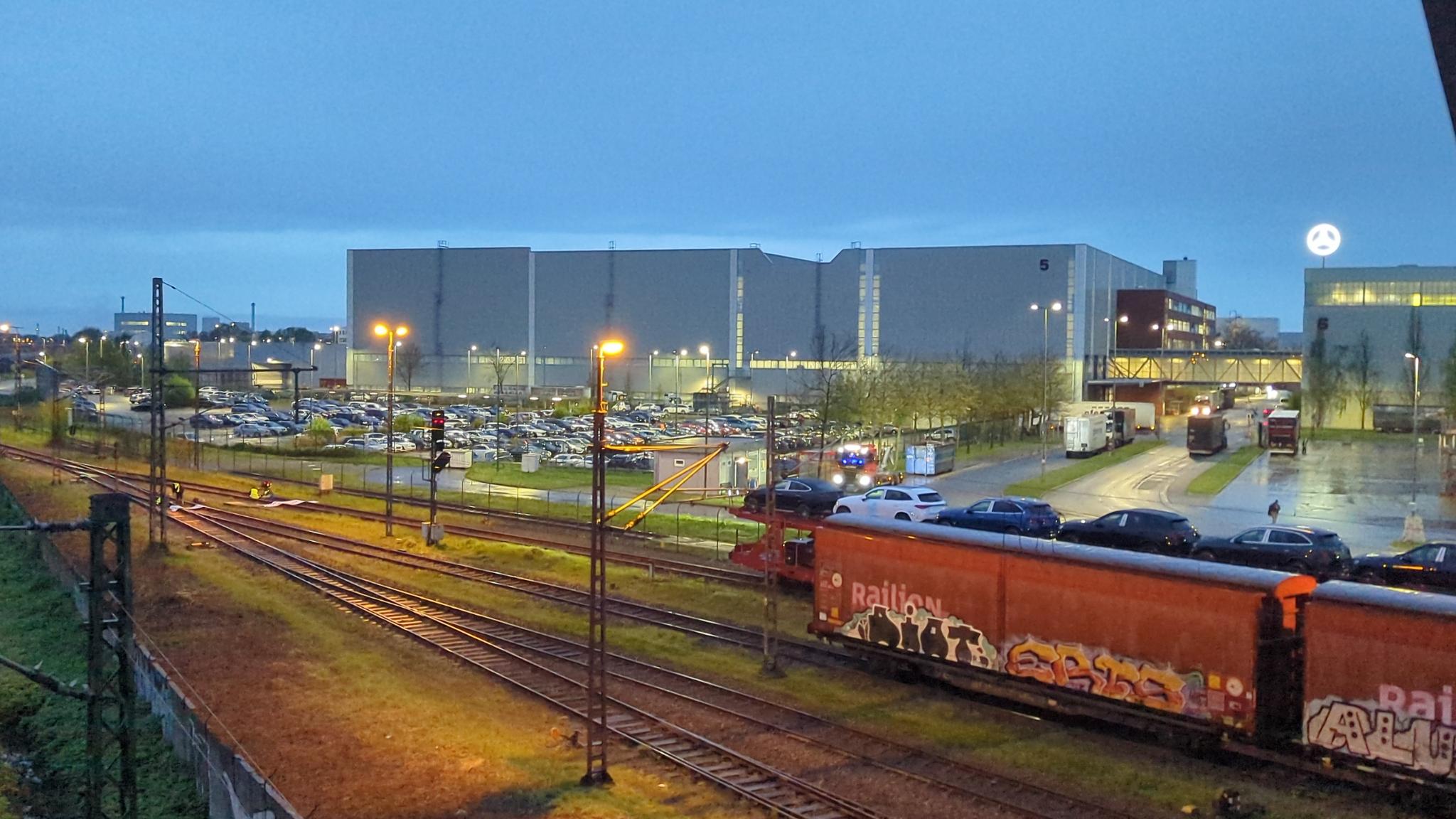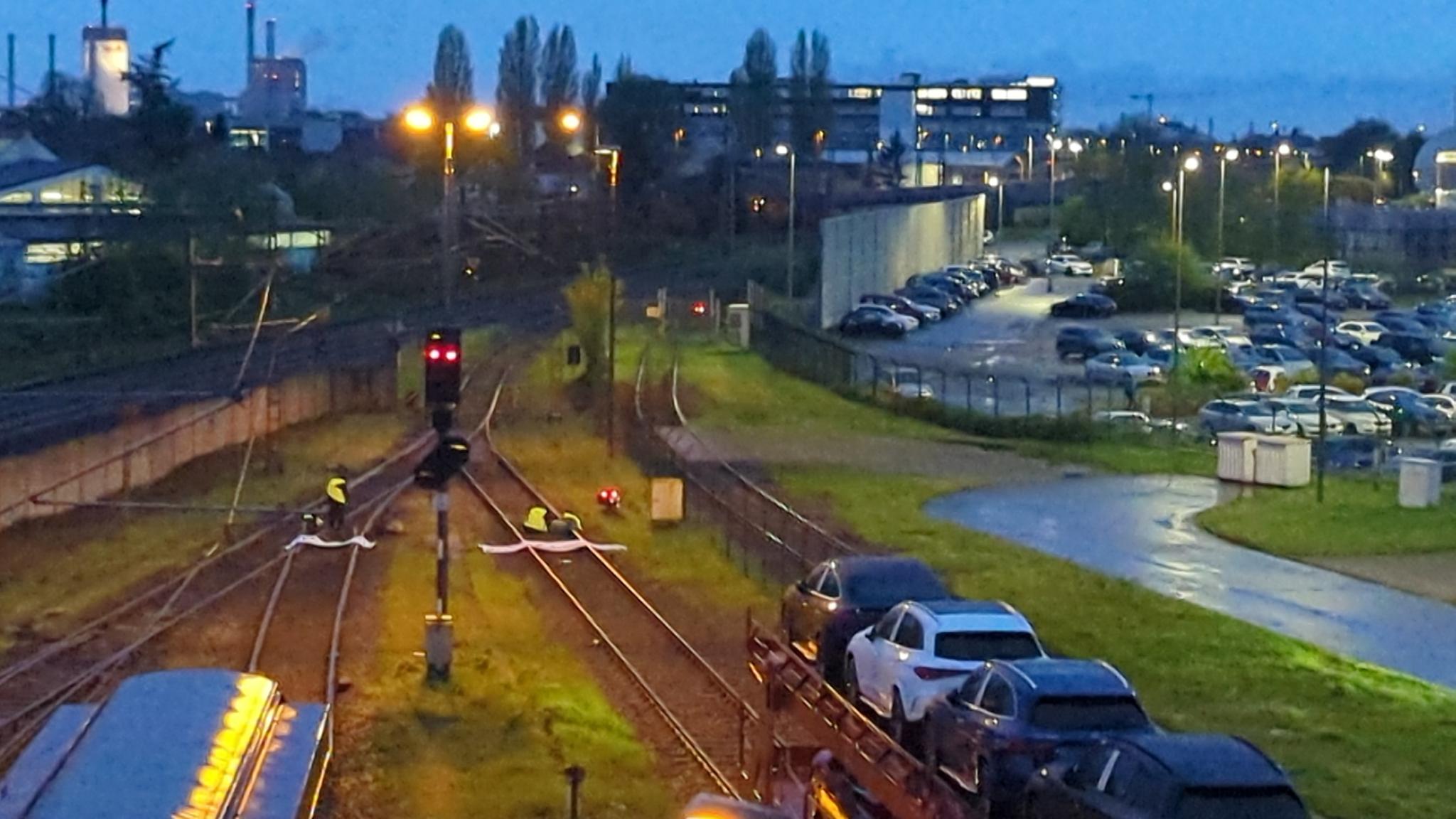Bremen. A group from the climate justice movement has been occupying the Mercedes plant near Bremen since early this morning. The tracks for the removal of the cars are being blocked by people and anchoring devices. Car trains with hundreds of luxury cars cannot leave the plant. We also show our presence at another part of the Mercedes plant: parts of the group climb in front of the glass facade of the Mercedes showroom. The protests point to the missed transport turnaround.
Marla Denke, who is taking part in the action, says: "The climate crisis is getting worse and worse and yet Mercedes continues to produce masses of resource- and energy-guzzling cars for private transport for the sake of profit. The biggest profit margin is achieved with large and heavy luxury cars for the rich. But you can't drive away from the climate catastrophe in SUVs either!"

According to the NGO Oxfam, the richest 10% in Germany cause as much CO2 emissions as 50% of the poorer half of the population. At the Bremen site of Mercedes Benz AG, the majority of cars produced are C-Class combustion engines and around 12% are luxury-class electric cars. Due to their size and weight, these cars are particularly harmful to the climate and take up a lot of public space.
Karla Pfeiffer, who is also taking part in the protests, says: "The costs of our climate-damaging economy are borne primarily by people in the Global South. That's why switching from combustion engines to electric drives is not a solution: especially in South America, companies are mining lithium for batteries and destroying local ecosystems and the livelihoods of indigenous communities in the process."
Most of the cars produced by Mercedes Benz AG are manufactured in Bremen. The participants in the protest are aware that over 12,000 people work at the plant. In principle, they are calling for the socialization of the entire car industry while retaining jobs in order to achieve a real turnaround in transport: A comprehensive expansion of local public transport and the conversion of production to buses and trains.

The activists in Bremen are also showing solidarity with the occupation of the forest near Tesla in Brandenburg. Together, they see themselves as part of a movement that wants to stop fossil capitalism: Disrupt. The Disrupt website states: "It's no longer a secret: every day, the capitalist economic system destroys a piece of our livelihood for profit. Greenwashing, product labels and empty promises do nothing to change this. When we tell the story of capitalism, we also tell the story of exploitation, environmental destruction and neo-colonialism." For May, Disrupt Tesla is mobilizing against the expansion of the Tesla Gigafactory in Grünheide.
Contact to the concrete action group: autoverkehr_ät_nirgendwo_dot_info

